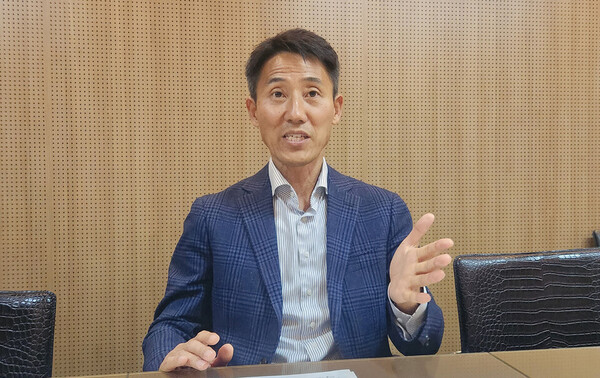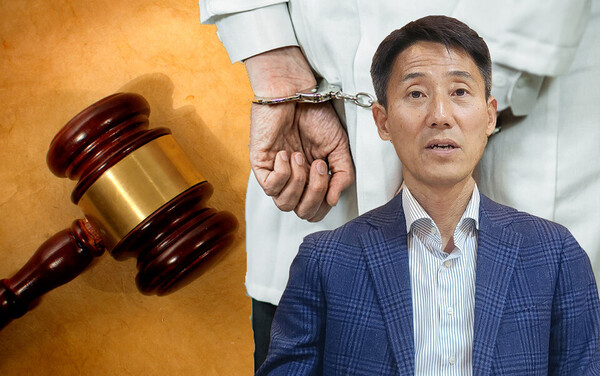One of the reasons doctors shy away from vital care is judicial risk. They have to treat patients with the risk of criminal penalties and hundreds of millions of won in damages. Even President Yoon Suk Yeol has spoken about the need to ease the legal burden for physicians.
Studies have shown that Korea prosecutes and criminally punishes doctors for malpractice at a higher rate than other countries.
Hyun Doo-youn, a managing partner at Kim & Hyun (SeSeung LLC) who has been practicing as a medical lawyer for decades, said this is because "the level of clinical medicine required by the courts is too high."
In particular, medical examiners who view "university hospital professors" as the average have also contributed to raising the “court's eye levels." Many medical evaluations are performed by specialists (professors) who work at university hospitals, and the evaluation criteria tend to be more geared toward "professors" rather than "general practitioners." Hyun added that the same standards evaluate clinics and university hospitals despite having different facilities and medical resources.
"Doctors who make medical appraisals should consider medical realities. If the medical accident occurred at a local small and midsize hospital, they should judge it at that level," Hyun said in an interview with Korea Biomedical Review. “You shouldn't judge like writing a thesis after knowing all the results and reviewing them."

Question: Doctors cite legal burdens as one of the reasons they shy away from essential care. How do you see it as a lawyer?
Answer: I think it's very relevant. When a doctor is charged with a criminal offense, they face an enormous psychological burden. Even if you are ultimately found not guilty, the trial is incredibly stressful and can make you doubt your profession. It's hard to imagine being accused by a patient and going to trial as a defendant when you've done your best to treat them. No doctor would want to practice in an essential medical field after such a verdict.
Q: Korea has a higher rate of prosecution and criminalization of doctors for medical errors than other countries. What do you think is the reason for this?
A: I don't have the statistics to make an accurate comparison, but overall, I think the rate of prosecution and conviction for medical malpractice in Korea is quite high compared to other countries. The reason is that the standard of clinical medicine required by the court is too high. In the past, there were a lot of medical accidents because the standard of medical care was low. However, doctors could decide their fees, so they were willing to take some risks.
However, the situation is very different now. The level of medical care in Korea has improved greatly, so I think there are fewer obvious medical accidents than in the past. On the other hand, due to the health insurance system, doctors can only receive a certain number of treatments. In such a situation, doctors will inevitably avoid specialties with a high probability of medical errors. The government plans to support doctors in essential medical care, but it is doubtful that there will be enough support or compensation.
Q: You pointed out that the courts are setting the standard of care too high, and one of the bases for judgment is medical opinion findings.
A: Medical malpractice should be judged at the level of clinical reality, and the standard is “ordinary doctor.” Since it is difficult for courts to determine the level of an average physician, medical examinations are often performed by university hospital professors, who judge based on their medical knowledge, not the level of a general practitioner (GP).
In addition, doctors who perform medical evaluations can retrace the entire case process. They can see every step of the way. As a doctor, it might be natural to point out the problems. However, in the process, there may be a difference between the standard of care as determined by a professor at a university hospital and what a GP would have done at the time of treatment. A medical examiner must take into account medical realities. If the medical accident occurred at a local small- and medium-sized hospital, the medical appraiser should consider the manpower, facilities, and equipment at that level. It would help if you didn't judge like you're writing a thesis, knowing all the results and looking back.
Q: Did you say that the courts set the level of clinical medicine too high in that sense?
A: Of course, judges are not bound by the results of medical evaluations. Even if a medical expert concludes that a medical error was realistically inevitable, a judge may conclude that the standard of clinical care is normative and that "this is what should have been done, even if it wasn't.” This has not been a problem in the past because the number of cases leading to medical disputes has been low.
Q: What do you think is needed to create an environment where courts judge at the level of an "ordinary physician"?
A: We need to be realistic. Causation has been relaxed and presumed in favor of patient damages, resulting in an erosion of physicians' right to practice medicine and the avoidance of specialties at high risk of medical litigation. We need to get back to the basics. Determining medical malpractice and causation should be a scientific process. No presumptions should be made to compensate patients. If judged strictly, convictions should not be easy.
Q: Judgments regarding the breach of the duty of explanation are also controversial. A case in point was a hospital slapped with 570 million won ($425,000) in damages for failing to explain the side effects of the flu drug Peramiflu.
A: There is much room for controversy for various reasons. The court ruled that even though the side effect was rare, it was listed as a warning in the drug's manual, so doctors were obligated to teach and explain it. The medical community argues that explaining all side effects and warnings in drug manuals is not feasible and not in line with medical reality. In the end, this problem should be solved by the drug side effects’ damage relief business. However, the current Pharmaceutical Affairs Act excludes medical accidents from the scope of drug side effect compensation. Excluding doctors for negligence or lack of explanation in prescribing or administering medicines is contrary to the purpose of the system. Future legislative improvements are needed.

Negligence is punished civilly and criminally with harsher penalties
Lawyer Hyun said that the trend toward criminalizing medical malpractice has become stronger. The level of punishment is also increasing, and it has become common to file a civil lawsuit first and then use the results to proceed with a criminal case. This is because, compared to criminal cases, civil cases are more likely to find medical negligence.
This was the case with an emergency physician who was sentenced to jail in the first instance for failing to diagnose a diaphragmatic hernia early enough. He was acquitted on appeal, and the Supreme Court found him not guilty. However, he left the emergency room for good. The case of the surgeon who was convicted of professional negligence and manslaughter for not operating on a patient with a bowel obstruction sooner was also a civil case. In these cases, the patient filed a civil lawsuit against the hospital to hold the hospital liable for negligence and then filed criminal charges against the doctors involved.
Q: According to a new study, medical malpractice trials tend to turn into criminal liability cases.
A: Medical errors are increasingly prosecuted and punished for professional negligence and manslaughter. In the past, when medical accidents occurred, criminal prosecutions tended to be avoided unless medical negligence was obvious. Even if criminal charges were filed, they were mainly used as pressure for negotiation, so investigative agencies did not prosecute medical accidents at a high rate. However, in recent years, patients have been filing civil lawsuits first and then filing criminal lawsuits based on the results. Civil cases are more likely to find a doctor negligent than criminal cases. If a doctor is found negligent in a civil case, the verdict can be used as evidence in a criminal case. Investigators have no choice but to prosecute because negligence was found in a civil trial.
Q: What are the levels of criminal penalties?
A: They are getting harsher. In recent years, there have been many cases where doctors have been convicted and jailed, in the first instance, in medical malpractice death cases. This results from applying the same sentencing standards as in cases of professional negligence manslaughter. In traffic accident death cases, even if negligence is recognized, the court often imposes a prison sentence based on the leniency standard if the victim cannot settle with the defendant or the defendant denies the crime. In medical malpractice cases, if the victim cannot settle with the doctor or does not admit negligence, the court sentences the doctor to imprisonment. Indiscriminate jail time can severely limit doctors’ ability to defend themselves. When doctors are taken to court, the patients they treat are also harmed, so they have no choice but to settle.
Q: You mean the courts treat medical errors like traffic accidents?
A: Medical accidents and traffic accidents should not be treated the same. Unlike traffic accidents, it is difficult to determine negligence and causation in medical accidents. In a traffic accident leading to death, it is relatively clear. This is not the case with medical accidents. It is difficult to determine whether the patient died because of a delayed examination or surgery or whether the patient's condition worsened due to an underlying medical condition. However, recent judgments tend to attribute all bad outcomes to medical negligence. Causation is too easily assumed and judged.
Also, the usual sentencing standards are applied once criminal liability is recognized. The sentencing guidelines for traffic accidents apply to medical errors. It is unfair to apply the same sentencing standards for professional negligence as for general work. Traffic accidents and medical accidents are completely different.
Q: The medical community is arguing for enacting a special law to exempt medical accidents from criminal liability to ease the legal burden on the essential medical field. What do you think of this?
A: If you are negligent in treating a patient, you should be criminally liable. This is also true in the field of essential medical care. I think the high rate of criminal liability for medical errors in Korea is due to investigative agencies and courts setting the standard of clinical care too high and making judgments about medical negligence and causation too easily. If the level of medical care is judged according to the reality of clinical care and the judgment of medical negligence and causation is more scientific, the criminal punishment for medical accidents will be more prudent.

